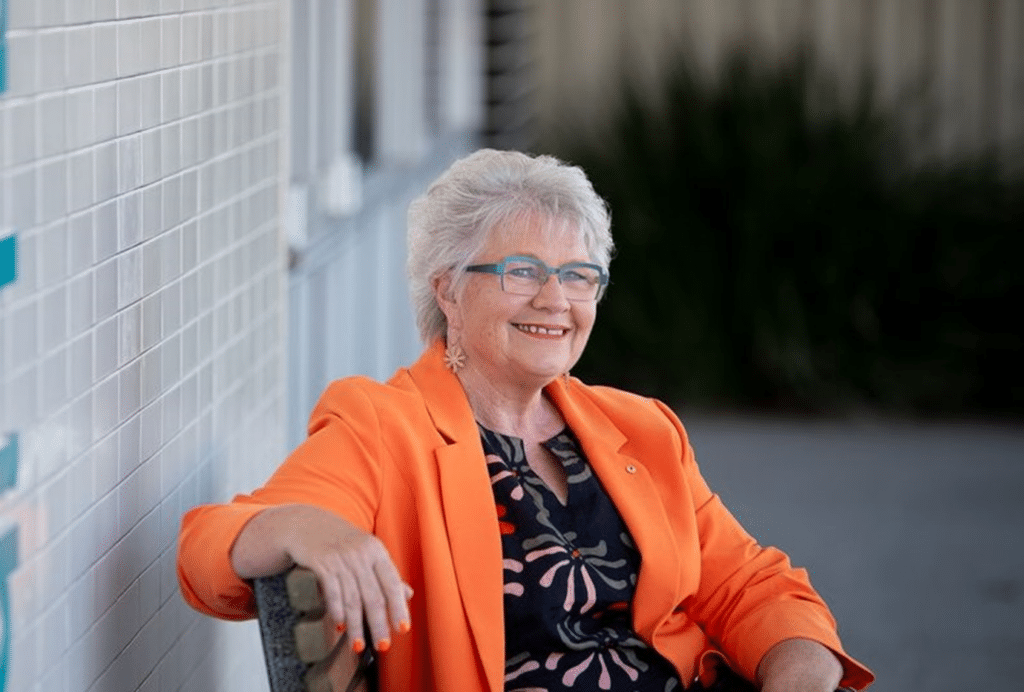Social cohesion and democracy is fragile in 2024. A sense of belonging is concurrent in thriving and democratic communities. But Australia’s sense of belonging plummeted to its lowest point since 2017, as reported in 2023 Mapping Social Cohesion Report from the Scanlon Foundation.
Belonging and happiness are interlinked. The World Happiness Report from the University of Oxford ranks Australia as the 10th happiest country.
However, happiness has declined across all age groups in Australia. The ranking for people under 30 sits at 19 compared to the ranking of 9 for people over 60. The young are now the least happy age group in the US, Canada, New Zealand and Australia.
Coinciding with the above is the disturbing global rise of gendered extremism and fascism (particularly in the male Gen Z cohort of 20-29) seeping into Australian communities.
Research by John Burn-Murdoch, found the democracy divide has young women sitting to the left of centre with young men moving further towards the right, or remaining conservative. Gallup data from the US reports women aged 18 to 30 are 30 percentage points more liberal than men of the same age. This would be comparable in Australia.
Further, Dr Alice Evans, UK gender and economic academic writes in What Prevents & What Drives Gendered Ideological Polarisation that “greater gendered ideological polarisation is encouraged by feminised public cultures, economic resentment, social media filter bubbles and cultural entrepreneurs”.
I would pose the hypothesis that the unhappiness of young women as found in the World Happiness Report may in some part correlate with the growing conservatism of male peers.
Civility starts at the local level
Civility and democracy starts within local communities and leaks into the fabric of state and national discourse. This has certainly been evident in right wing and fascist disrupters at council and local engagement levels which has escalated since the pandemic.
This year we have state elections in Tasmania, Northern Territory, ACT and Queensland. Also 52 per cent of Australian councils have, or are heading to the polls in Queensland, Victoria and New South Wales.
Voting in these local government elections is compulsory, hence the troubling impact of polarised and unhappy Gen Z cohorts. Note that Gen Z represent over 13.3 per cent of eligible voters.
Australia is grappling with a Trumpism and misogyny divide which seeks to destabilise society and democracy. This has been fermenting post COVID due to general insecurity and unmet needs which fuels more insecurity and community fragility in young men and the disenfranchised.
These cohorts are drawn towards candidates who hold racist, sexist and other unacceptable views. Whilst we don’t have Trump in Australia, we do have candidates and their followers with campaigns intimidating communities and disrupting democracy.
How the younger generation and disenfranchised vote will impact communities and democracies for years to come. So it’s imperative we embrace the practice of befriending and tending people who are unhappy and may be deemed repugnant.
But having been a social worker for many years, I am cognisant of the difficulty most face to engage with people whose actions and views may sit at odds with accepted social norms.
For those not in social work or policing, it can seem inconceivable to be at the table with people who threaten society and create division. But division and unrest expand exponentially under a ‘they and us’ positioning.
Being heard and understood
At their core, humans no matter their level of mildness or barbarity have a desire to be truly listened to in a way that makes them feel heard and understood.
As world renowned FBI international kidnapping negotiator and trainer Professor Chris Voss says: “I could be the smartest guy in the planet, but if you don’t feel I genuinely see you as a human being, you’re not going to care how smart I am because you’re not going to trust.”
Professor Voss is the inventor of the tactical empathy approach to volatile negotiations and discussions. His methods are centred on empathy and collaboration versus aggressive and abrasive tactics. Tactical empathy focusses on understanding another person’s feelings and mindset.
I support his approach as it’s the buttress of my community and government engagement. Understanding and minimising dangerous attitudes and behaviours must begin with close up engagement, despite the crudeness of those voices.
Apprehending the interface of growing radicalisation, gendered polarisation and hateful content online and the algorithms that drive to attack democracy and community cohesion is at a critical point in Australia.
We must tend and befriend young men and women who are unhappy. And we must address the elephant in the room by engaging with Gen Z and older men who aspire to the likes of Jordan Peterson and Andrew Tate as role models.
Taking a tactical empathy, befriend and tend lens versus a fight or flight lens to divisive attitudes and behaviours and offering positive role models will go a long way to inoculate against gendered polarisation.
You don’t need to like someone to trust them. Often, to get the things that matter over the line, we must work with people we don’t like, or may not even trust. We see this unfolding on the world stage repeatedly.
We need to step into our discomfort and go to the places that author of Collaborating with the Enemy Adam Kahane says “embraces discord, experimentation and genuine co-creation”.
This is tactical empathy at scale delivering an experience of belonging and being heard, that supports the foundations of democracy.
It is a challenge to engage with people we do not like. But you do not need to like someone to have a desire to understand them for the greater good.
Without addressing the gendered and generational features of polarisation, the gender and generation gaps are at risk of endangering the strength of communities and democracy.


